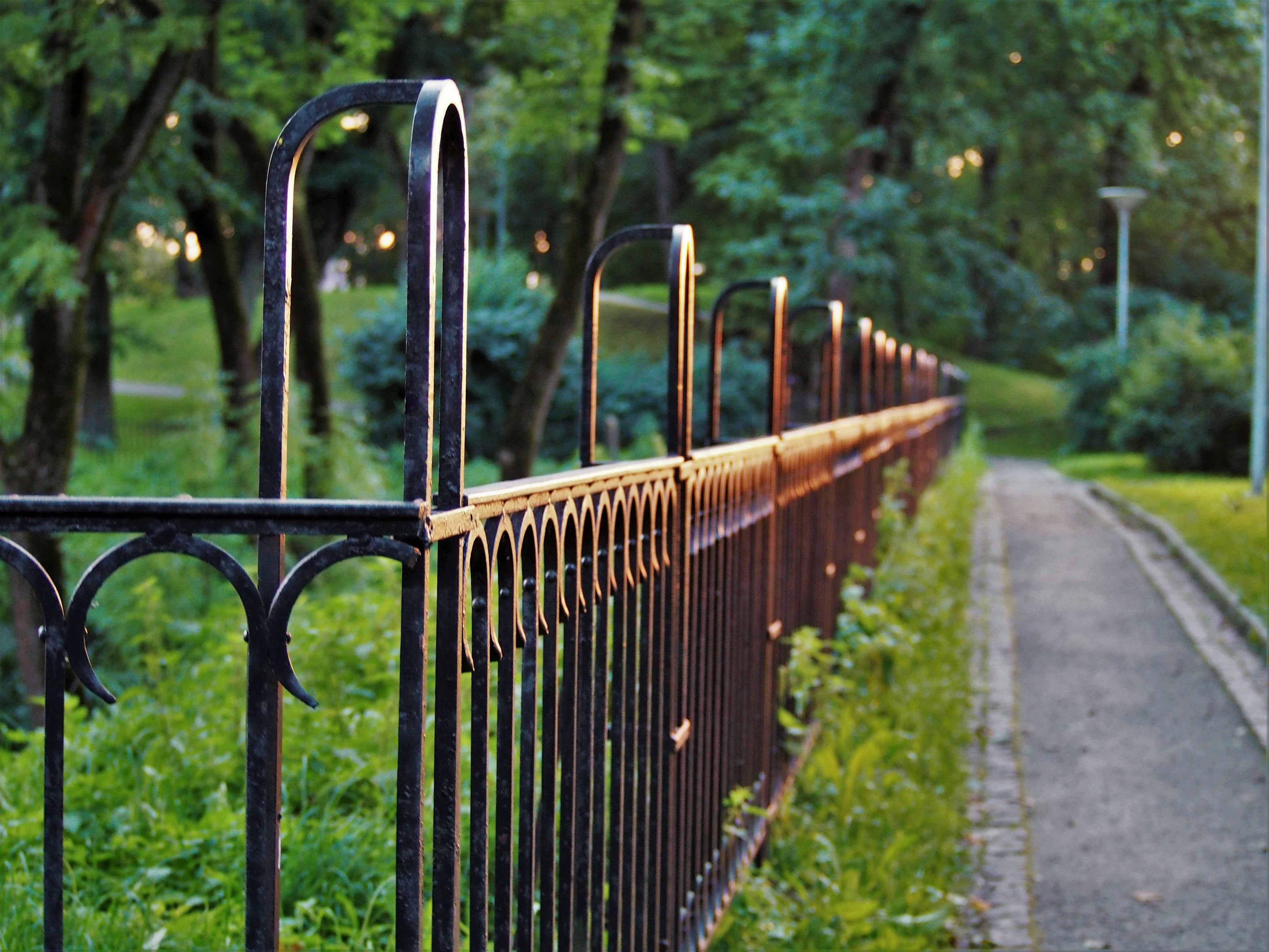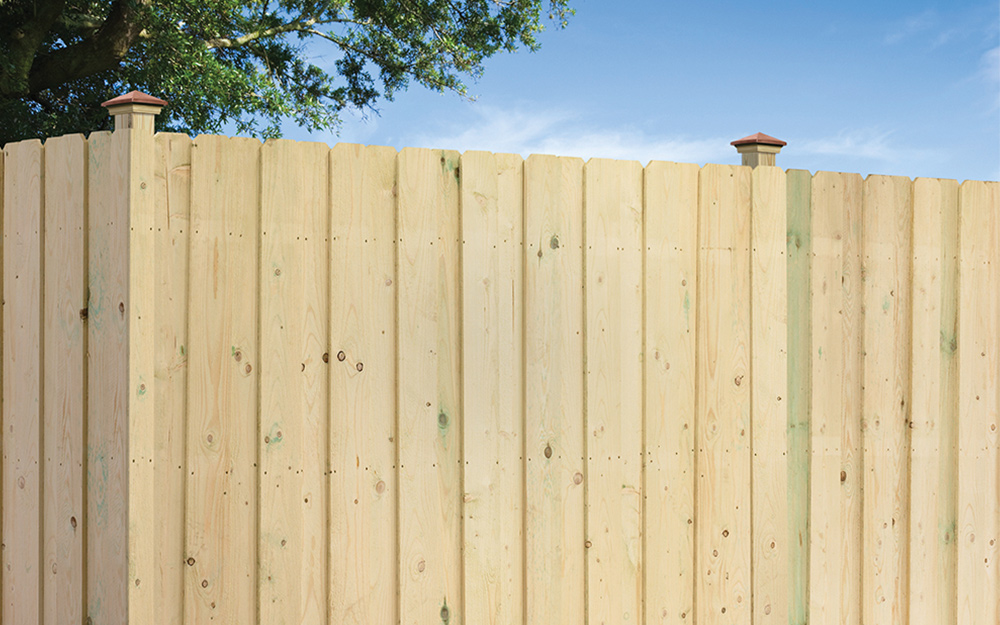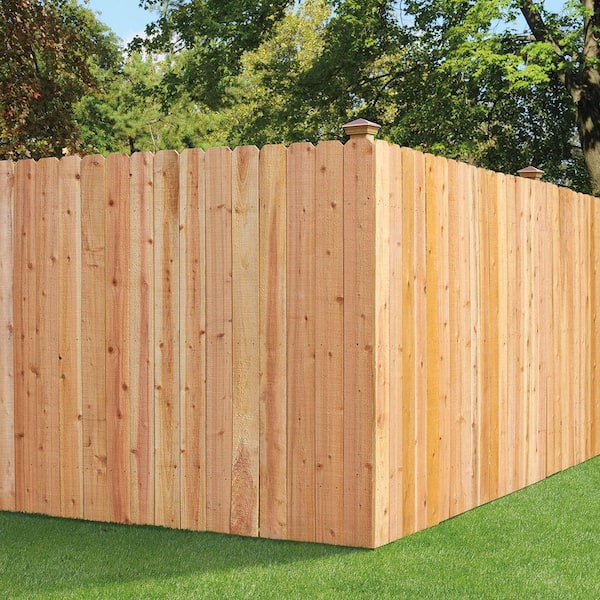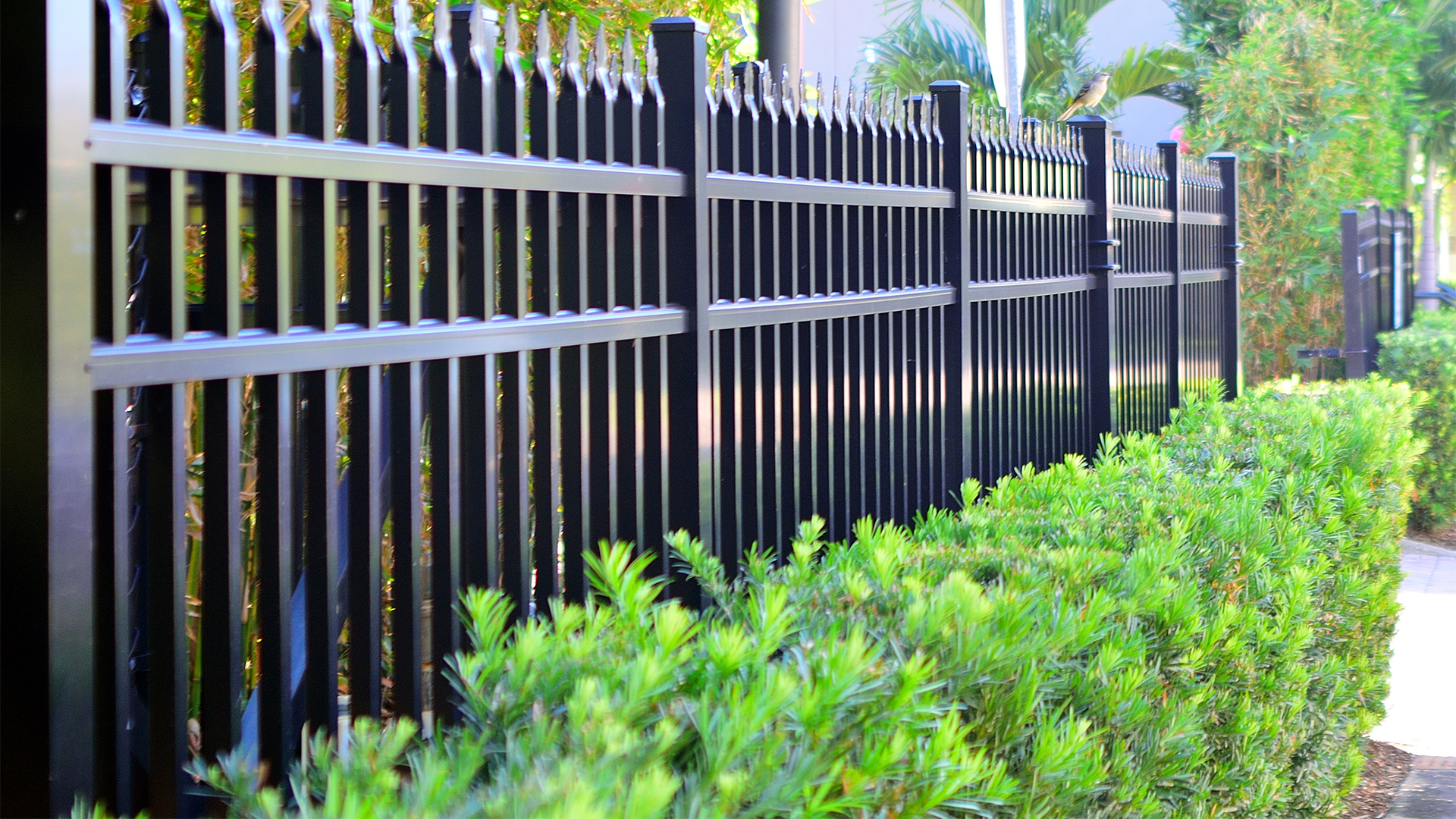Types of Fence Materials

The pros and cons of common fence materials: Make an informed decision
By: Diana Sawyer | Updated: 3/9/2023
Fencing is an essential part of any property, providing security, privacy, and aesthetic appeal. There are many types of fence materials available in the market, each with its own unique characteristics, advantages, and drawbacks. From traditional wood and vinyl fencing to modern composite and aluminum fencing, there is a wide variety of materials to choose from, each suited to different needs and budgets.
Choosing the right type of fencing material can be a challenging task for homeowners, as there are many factors to consider, such as durability, maintenance, cost, and design. In this article, we will explore some of the most popular types of fencing materials available today and discuss their pros and cons, as well as their suitability for different applications. Whether you are looking for a low-maintenance fence, a high-security fence, or a fence that complements your home's architectural style, this article will provide you with the information you need to make an informed decision.
Pressure Treated Lumber
Pressure treated lumber is a popular material for building fences due to its durability and resistance to decay and insect damage. The wood is treated with chemicals that make it resistant to rot and decay, which makes it ideal for outdoor use. Pressure treated lumber is also relatively inexpensive and widely available, making it an attractive option for budget-conscious homeowners. Additionally, it can be painted or stained to match any home design, which adds to its versatility.
However, using pressure treated lumber for fencing also comes with some drawbacks. The chemicals used to treat the wood can be harmful to the environment and may leach into the soil over time. This can be especially concerning if the fence is located near a vegetable garden or other areas where people spend a lot of time. The chemicals can also be harmful to pets if they come into contact with the fence. Additionally, pressure treated lumber may not be as aesthetically pleasing as other materials, which could be a concern for some homeowners who want a more decorative fence.

Cedar
Cedar is a popular material for fencing due to its natural resistance to rot and insect damage. It has a beautiful, natural appearance that can complement any home design. Cedar is also lightweight, making it easy to work with, and it is a renewable resource, making it an environmentally friendly option. Additionally, cedar contains natural oils that act as a preservative, which means that it can last for many years without needing to be treated with chemicals or stains. Overall, cedar is a great option for homeowners who want a beautiful and long-lasting fence that is also eco-friendly.
One potential drawback to using cedar for fencing is its cost. Cedar is generally more expensive than other types of wood, which could be a concern for homeowners on a tight budget. Additionally, cedar can be susceptible to splitting and warping, especially if it is not properly maintained. This means that homeowners may need to replace damaged or weathered boards more frequently than they would with other materials. However, with proper care and maintenance, cedar fences can last for many years and add value to a home.

Redwood
Redwood is a popular material for fencing due to its natural beauty and durability. It has a rich, deep color and a unique grain pattern that makes it stand out from other types of wood. Redwood is also naturally resistant to rot and decay, which means that it can last for many years without needing to be treated with chemicals. Additionally, redwood is lightweight and easy to work with, making it a popular choice for DIY fencing projects. Overall, redwood is a great option for homeowners who want a beautiful, long-lasting fence that requires minimal maintenance.
One potential drawback to using redwood for fencing is its cost. Like cedar, redwood is generally more expensive than other types of wood, which could be a concern for homeowners on a tight budget. Additionally, redwood can be more difficult to source than other materials, which could make it harder to find a reliable supplier. Finally, redwood is not as widely available as other materials, which means that it may not be an option in certain areas. However, for homeowners who are willing to pay a premium for a beautiful and long-lasting fence, redwood is an excellent choice.
Composite
Composite fencing is a popular option for homeowners who want a low-maintenance fence that is both durable and eco-friendly. Made from a combination of wood fibers and recycled plastic, composite fencing is resistant to rot, insect damage, and fading, which means that it requires very little maintenance over its lifetime. Additionally, composite fencing is available in a variety of colors and styles, which means that homeowners can choose a design that complements their home's architecture and landscaping. Composite fencing is also environmentally friendly, as it is made from recycled materials and does not require the use of harmful chemicals to maintain.
One potential drawback to using composite fencing is its cost. Composite fencing is generally more expensive than other types of fencing materials, which could be a concern for homeowners on a tight budget. Additionally, some homeowners may not like the fact that composite fencing is not a natural material and does not have the same look and feel as wood. Finally, composite fencing may not be as widely available as other types of fencing, which could make it harder to find a reliable supplier. However, for homeowners who want a low-maintenance, eco-friendly fence that will last for many years, composite fencing is an excellent option.

Popular Brands of Composite Fencing
Some popular brand names of composite fencing include:
- Trex
- Fiberon
- TimberTech
- Veranda
- SimTek
- CertainTeed
Vinyl
Vinyl (PVC or Polyvinyl Chloride) is a popular material for fencing due to its durability, low maintenance, and wide range of colors and styles. It is a synthetic material that is resistant to rot, insects, and weathering, which means that it can last for many years with little maintenance. Additionally, vinyl fencing is available in a wide range of colors and styles, which means that homeowners can choose a design that complements their home's architecture and landscaping. Vinyl fencing is also easy to clean and maintain, making it an attractive option for homeowners who don't want to spend a lot of time or money on fence upkeep.
One potential drawback to using vinyl fencing is its cost. Vinyl fencing is generally more expensive than other types of fencing materials, which could be a concern for homeowners on a tight budget. Additionally, some homeowners may not like the fact that vinyl fencing is not a natural material and does not have the same look and feel as wood or other natural materials. Finally, vinyl fencing can be more difficult to install than other types of fencing, which could make it a less attractive option for DIY projects. However, for homeowners who want a low-maintenance, long-lasting fence that comes in a variety of colors and styles, vinyl fencing is an excellent option.
Popular Brands of Vinyl Fencing
Some popular brands of vinyl (PVC) fencing include Bufftech, CertainTeed, Country Estate, Duramax, Kroy, and Veranda.
Chain Link
Chain link fencing is a popular option for homeowners who want a cost-effective, low-maintenance fence that provides security and visibility. Chain link fencing is made from interlocking steel wires that form a diamond pattern, which makes it a durable and strong option for protecting property. Additionally, chain link fencing is easy to install, requires minimal maintenance, and is available in a range of heights and gauges, making it a versatile option for a wide range of applications. It is also a good option for homeowners who want a fence that provides some level of visibility while still providing a degree of security.
One potential drawback to using chain link fencing is its appearance. Some homeowners may find the industrial look of chain link fencing unattractive, which could be a concern for those who want a more decorative fence. Additionally, chain link fencing does not offer the same level of privacy as other types of fencing, which could be a concern for homeowners who want to create a more secluded outdoor space. Finally, chain link fencing can be easy to climb, which could make it a less effective option for keeping pets or children contained. However, for homeowners who want a cost-effective, low-maintenance fence that provides security and visibility, chain link fencing is an excellent option.
Aluminum Fence
Aluminum fencing is a popular option for homeowners who want a low-maintenance, durable fence that provides both security and style. Aluminum fences are lightweight, rust-resistant, and do not require painting or staining, which means that they require minimal maintenance over their lifetime. Additionally, aluminum fencing is available in a wide range of styles and some colors, which means that homeowners can choose a design that complements their home's architecture and landscaping. Aluminum fencing is also a good option for homeowners who want the look of ornamental wrought iron fencing that is less expensive, easy to install and requires less maintenance.
One potential drawback to using aluminum fencing is its cost. Aluminum fencing is generally more expensive than other types of fencing materials, which could be a concern for homeowners on a tight budget. Additionally, aluminum fencing does not offer the same level of privacy as other types of fencing, which could be a concern for homeowners who want to create a more secluded outdoor space. Finally, aluminum fencing can be easy to dent or damage, which could make it a less effective option for keeping pets or children contained. However, for homeowners who want a low-maintenance, stylish fence that provides security and durability, aluminum fencing is an excellent option.

Wrought Iron
Wrought iron fencing is a popular option for homeowners who want a stylish, durable fence that provides both security and elegance. Wrought iron fences are made from iron bars that are bent and twisted into intricate designs, which means that they can add a decorative element to any outdoor space. Additionally, wrought iron fences are very durable and can last for many years with minimal maintenance. They are also very strong and can provide a high level of security for homeowners who want to protect their property.
One potential drawback to using wrought iron fencing is its cost. Wrought iron fencing is generally more expensive than other types of fencing materials, which could be a concern for homeowners on a tight budget. Additionally, wrought iron fencing requires regular maintenance, including painting and rust removal, which could be time-consuming and expensive over its lifetime. Finally, wrought iron fencing does not offer the same level of privacy as other types of fencing, which could be a concern for homeowners who want to create a more secluded outdoor space. However, for homeowners who want a stylish, durable fence that provides security and elegance, wrought iron fencing is an excellent option.
Masonry
Masonry fencing, which includes brick, stone, and concrete, is a durable and long-lasting option for homeowners who want a fence that will last for many years without needing a lot of maintenance. Masonry fences are strong and resistant to weather, which means that they can withstand harsh conditions without breaking down. Additionally, masonry fences offer a high level of privacy and can provide a sound barrier from external noise. They can also add to a home's overall value and can enhance its aesthetic appeal.
One potential drawback to using masonry fencing is its cost. Masonry fencing is generally more expensive than other types of fencing materials, which could be a concern for homeowners on a tight budget. Additionally, masonry fences are not as easy to install as other types of fencing and require skilled labor to construct, which could add to the overall cost. Finally, masonry fences can be less versatile than other types of fencing as they are more difficult to modify or remove. However, for homeowners who want a long-lasting, low-maintenance fence that provides privacy and aesthetic appeal, masonry fencing is an excellent option.
Conclusion
In conclusion, choosing the right type of fencing material is an important decision for any homeowner. Whether you are looking for a fence that provides privacy, security, or aesthetic appeal, there are many types of fences available to suit your needs and budget. From traditional wood and vinyl fencing to modern composite and aluminum fencing, each material has its own unique advantages and drawbacks.
Before choosing a fencing material, it is important to consider several factors such as maintenance, durability, cost, and design. By understanding the pros and cons of each material, you can make an informed decision that will provide you with a fence that meets your needs and enhances the value of your property.
No matter what type of fencing material you choose, it is important to have it installed by a reputable and experienced professional. With proper installation and maintenance, your fence will provide you with many years of security, privacy, and aesthetic appeal.